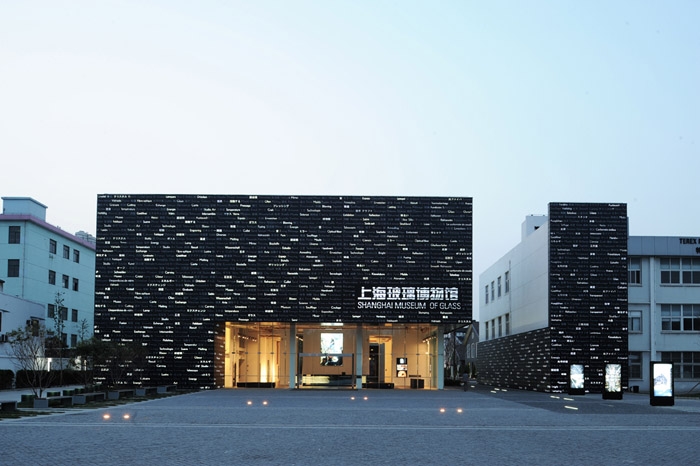
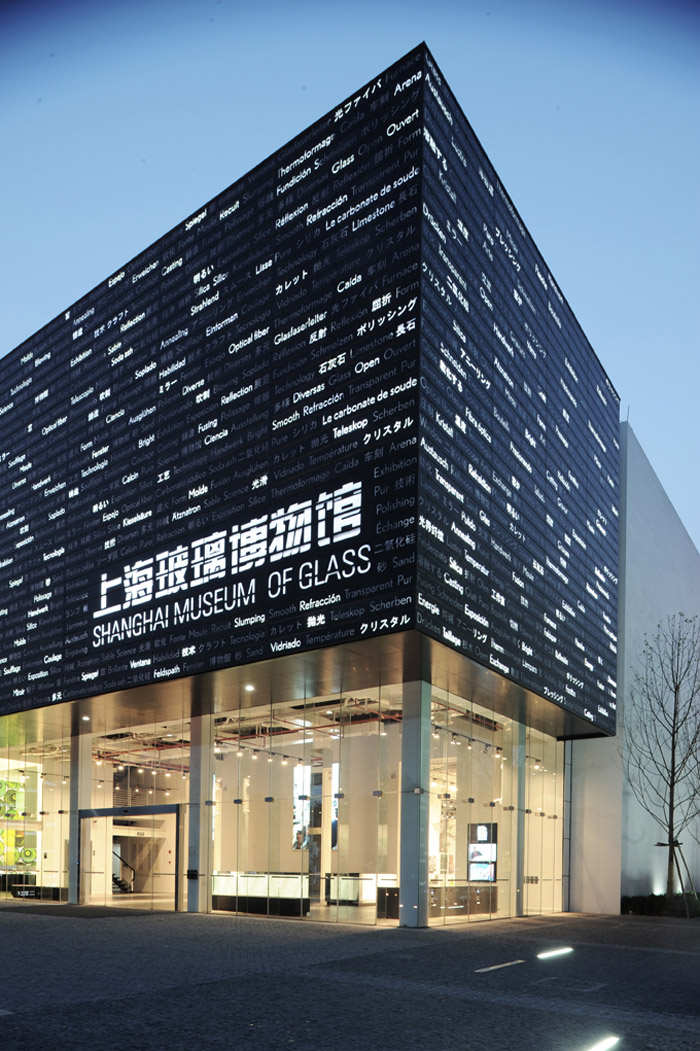
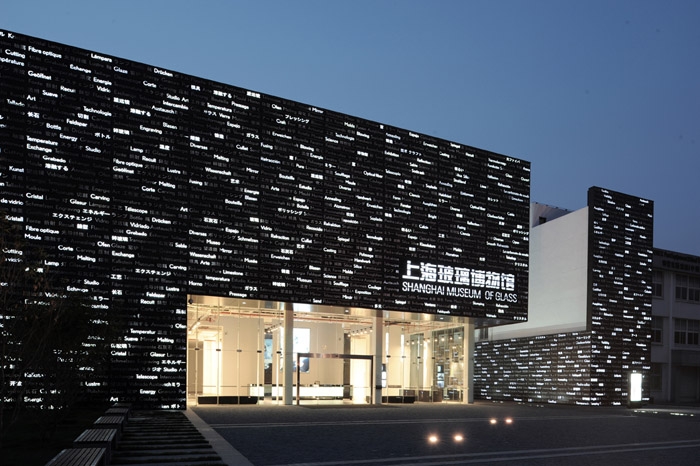
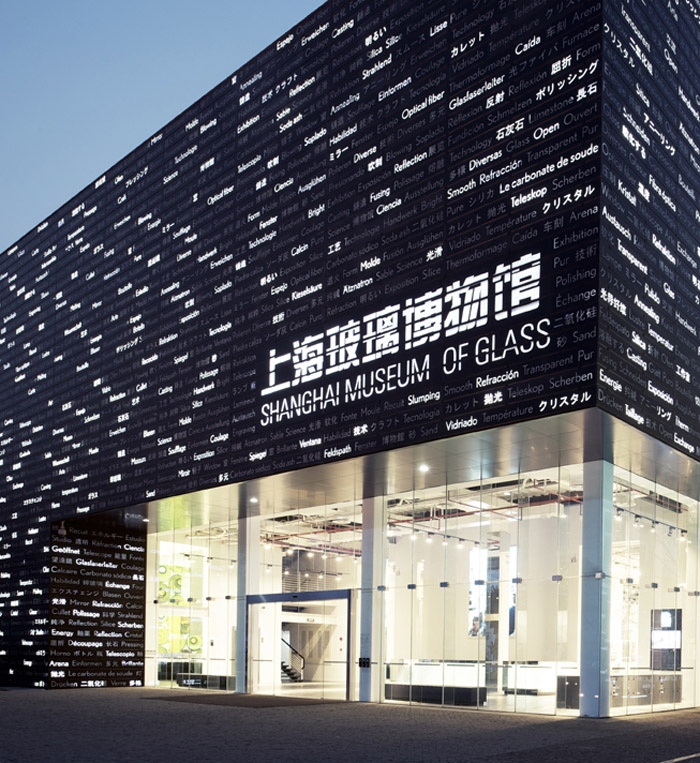
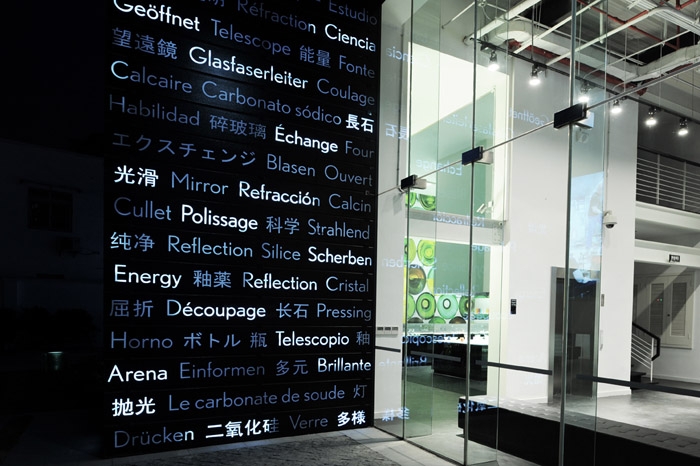
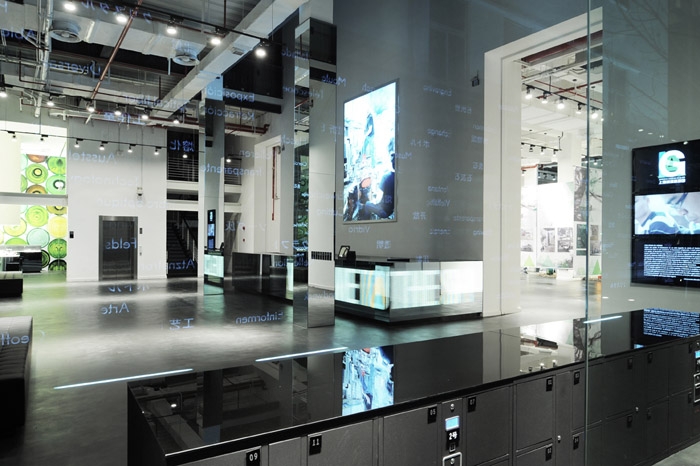
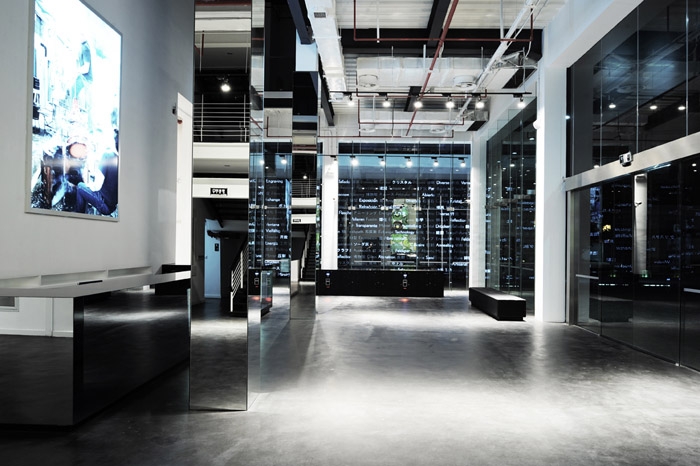
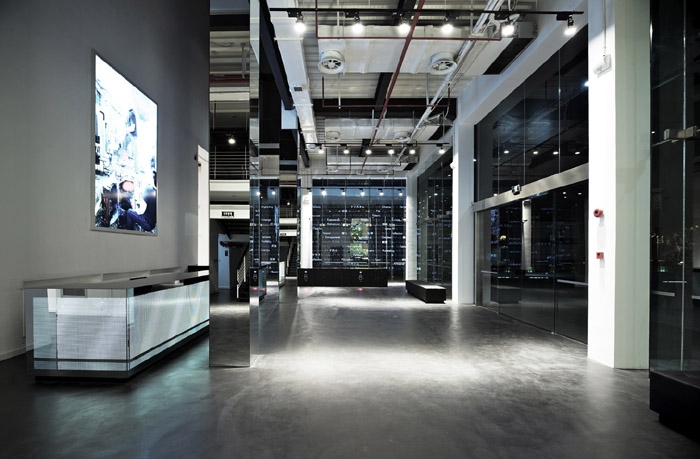
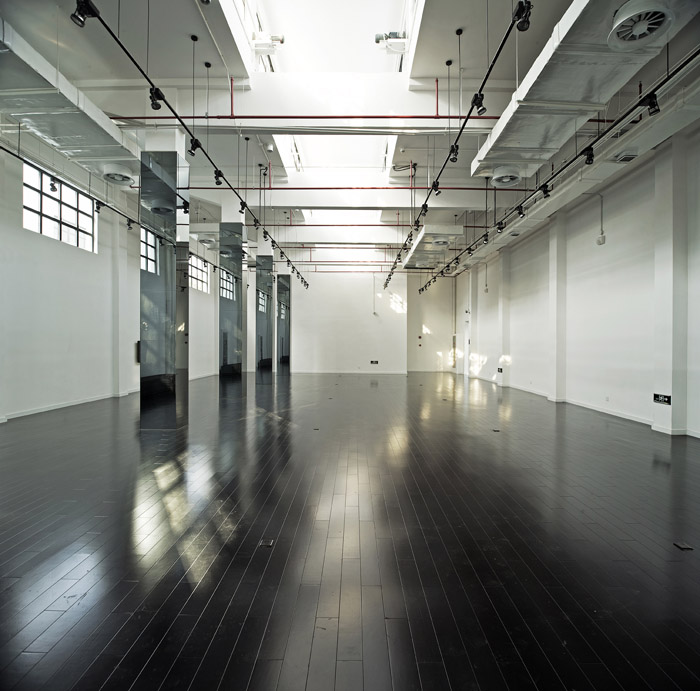

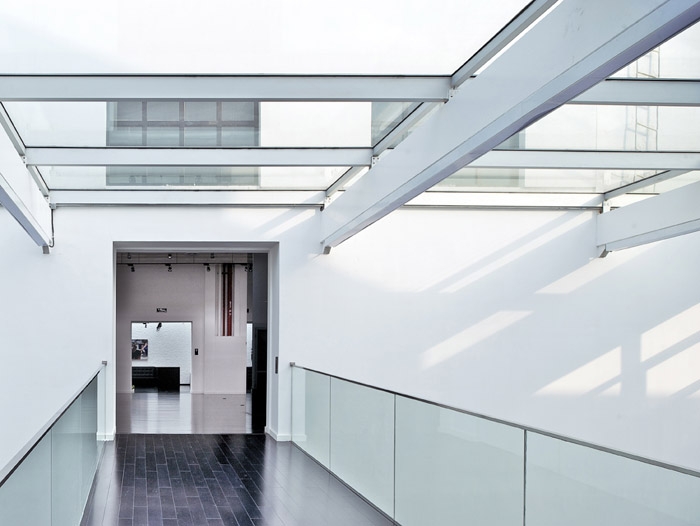
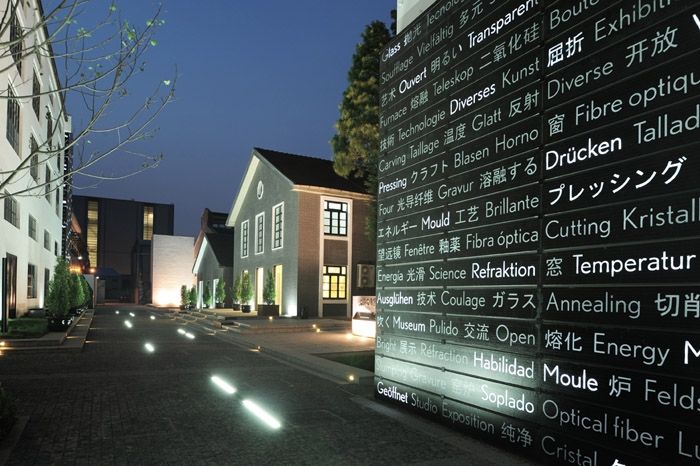
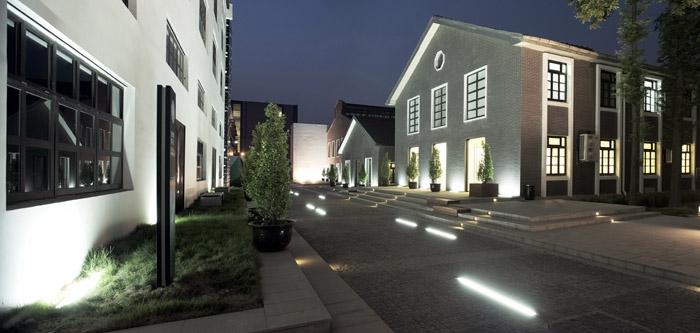
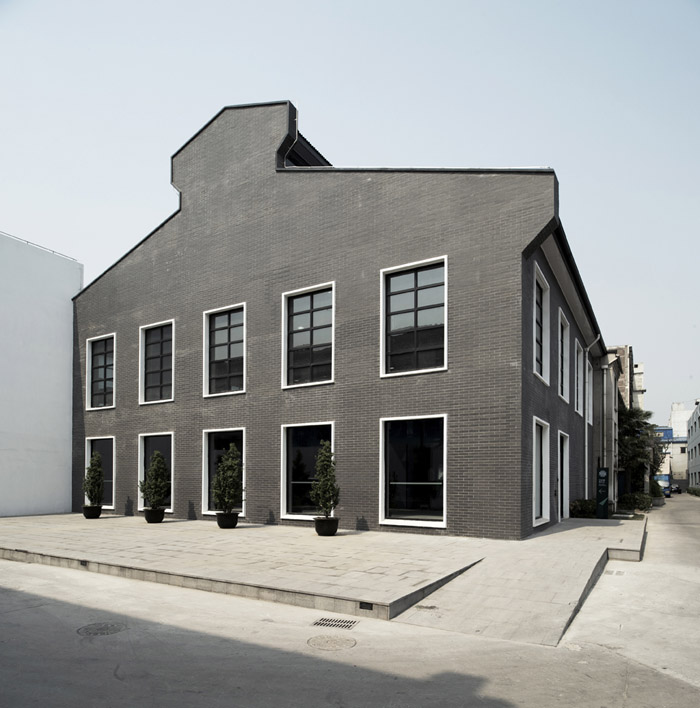
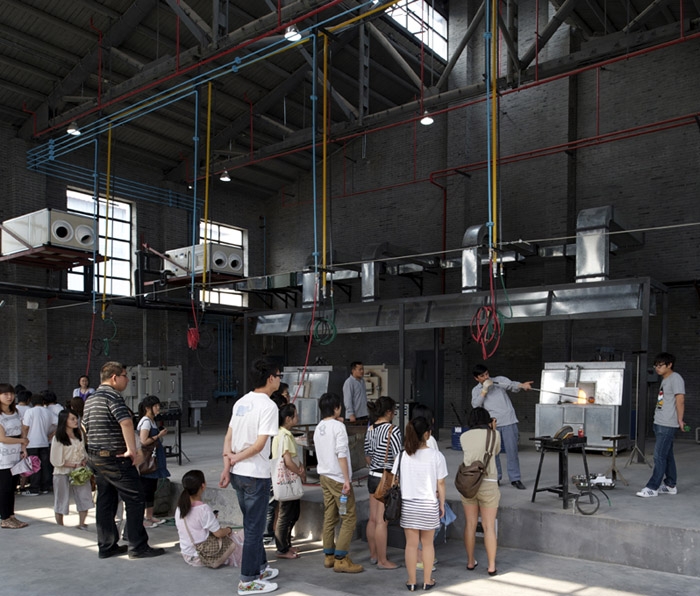
G+ Glass Theme Park – a concept is born
Located in Shanghai’s Baoshan District, this former glass manufacturing site covers a total area of
29,612sqm including thirty existing buildings varying in age and scale. logon developed the entire 20
year strategic development plan renaming the site to G+ Glass Theme Park (Glass, Art, Research and
Technology Park). Phase one includes the Shanghai Museum of Glass and a hot glass show covering a
total site area of 5,785sqm.
The decision was made to design a glass museum in phase one. As the site location is not well known
due to the projects’ inconvenient location, a ‘Loss Leader’ status for the first phase was decided. This
business concept was chosen as the entire site needed a way to build brand awareness of the site and
value of the surrounding land; at the same time add value to the Baoshan district and community, thus
the Shanghai Glass of Museum concept was realized. Following phases of G+ Glass Theme Park
include; a sculpture yard in phase two, a science park in phase three and a business park in phase four
all supported by commercial facilities planned to be complete by 2018.
a ‘type two’ museum; infusing innovation to an old idea
The Shanghai Museum of Glass is one of the only glass museums in China; but this is not what makes it
unique. After the logon lab developed the G+ Glass Theme Park development strategy, a key project
positioning decision was made; to develop phase one into a ‘Type Two’ multifunctional glass museum.
Type Two museums differ from regular (Type One) museums as in this case where the site is not
located downtown or near convenient public transportation for easy access. People are happy to visit a
regular museum for short periods of time due to convenience; however, it would be challenging to
expect someone invest over two hours by car or bus to visit a museum for only an hour. Another key
feature of type two museums is that they are multifunctional; they must provide enough activities and
entertainment to attract people to spend at least two hours or longer. In addition to its glass themed
exhibition, the Shanghai Museum of Glass does this through its’ hot glass shows, DIY workshops,
lectures, libraries, and other interactive activities all designed to attract and educate a variety of target
groups creating value and incentive for people to visit.
Shanghai Museum of Glass – architecture that embraces the old and the new
The Shanghai Museum of Glass multifunctional design combines exhibitions with hot glass shows, DIY
workshops, lectures, libraries, restaurants, coffees, events, shops, public space and so on. Its’ sustainable
adaptive reuse design and modern feel incorporate old and new ideas making it the first of its’ kind in
China. The Entrance Plaza is the face of the museum enabling immediate recognition and recall for
visitors where it guides people into the museum, hot glass show and surrounding areas. The new
entrance building stands on the Entrance Plaza acting as a welcoming platform for the museum.
Contrasting the dark facade with the bright lobby interior creates a unique first impression for visitors to
the museum. The facade is made from U shaped glass imported from Germany, sand blasted and
enameled to reveal transparent glass-related words in various languages. Behind the glass facade is a
LED backlight that allows light to glow through each word on its black background; the final effect is
breathtaking by night. The Shanghai Museum of Glass will educate and entertain thousands of visitors
whilst adding value to the local district government and people for years to come.
G+玻璃主题园概念的诞生
原上海玻璃工厂坐落于上海市宝山区,占地面积29,612 平方米,园区内分布着30 栋不
同年代、规模各异的建筑。logon 罗昂为园区制定了20 年的发展策略,并重新命名为
G+玻璃主题园区(玻璃、艺术、研究和技术园区)。一期工程包括上海玻璃博物馆和
热玻璃演示中心,总占地面积为5,785 平方米。
上海轻工玻璃有限公司计划在上海玻璃工厂的原址上打造一个全新的玻璃博物馆。由于
地理位置较远,这里不为大众熟知,因此一期工程的策略是不以盈利为目的,而是首先
吸引更多游客。项目的商业策略旨在提升整个园区的品牌知名度、提升周边环境及宝山
区的品牌价值,上海玻璃博物馆的概念也由此形成。G+玻璃主题园区的后期工程还包
括:二期雕塑广场、三期科技广场和四期商业园,这些后期工程都将配备完善的商业设
施,预计于2018 年全部完工。
“第二类”博物馆:对常规模式的创新
上海玻璃博物馆是中国为数不多几家玻璃博物馆之一,但它的独特之处不局限于此。
logon lab 为园区制定了G+玻璃主题园区发展策略及关键的项目定位决策:那就是把一
期园区打造成“第二类”多功能玻璃博物馆。这种新型博物馆和普通的“第一类”博物
馆有很大区别。普通博物馆交通便利,人们一般用很短的时间完成参观。而这个项目位
置远离市中心,地铁等交通方式也不够便利,人们不太愿意在路上花1 到2 个小时去参
观一个只能呆半个小时的博物馆。
“第二类”博物馆的另一特点是其多功能性,它能提供丰富的娱乐活动,吸引游客前往
参观,在这里逗留2 个小时甚至更久。除了玻璃主题展览以外,上海玻璃博物馆拥有热
玻璃演示中心,DIY 工坊,演讲空间,小型图书馆以及其他丰富精彩的活动,使不同人
群都能在此寓教于乐。
上海玻璃博物馆-新旧融合的建筑
上海玻璃博物馆的多功能设计方案囊括了展览空间、热玻璃演示、DIY 工坊,演讲空
间、图书馆、咖啡馆、活动空间、商店、公共空间等等。这个可持续的改造设计,将新
旧特色融于一体,赋予项目现代感,是中国 “第二类”博物馆的先驱。入口广场是博
物馆的门面,具有高识别度,引导游客进入博物馆、热玻璃演示中心及园区其他地方。
矗立于入口广场上的全新建筑迎接着来往的游客。明亮的博物馆大堂与黑色外立面形成
鲜明对比,给游客以耳目一新的感受,令人印象深刻。外立面采用德国进口的U 型玻
璃,经过喷沙和涂层处理勾勒出和玻璃有关的多国文字。玻璃立面背后的LED 灯管点
亮了黑色背景上的文字,营造出令人眩目的效果。上海玻璃博物馆将为游客提供集娱乐
教育于一体的体验场所,也将为宝山区政府和人民也带来更多福祉。